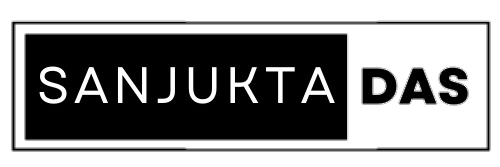In the ever-evolving landscape of professional success, the significance of references post-interview cannot be overstated. This blog post aims to unravel the nuances of leveraging references effectively to bolster your career prospects. From the art of choosing the right references to crafting a compelling follow-up, let’s embark on a journey that unlocks the potential of this often-underutilized aspect of the job search process.
The job interview is a crucial step in the employment process, but what happens after the interview is equally important. One often overlooked aspect is the power of references. References can significantly influence a hiring decision, making it essential for job seekers to understand how to navigate this aspect of the job search process. In this blog post, we will explore the art of post-interview references and provide guidance on how to leverage them effectively.
Choose Your References Wisely
Before diving into the post-interview reference process, it’s crucial to carefully select your references. Choose individuals who have a good understanding of your skills, work ethic, and accomplishments. Ideally, these should be former supervisors, colleagues, or mentors who can speak positively about your professional abilities. Make sure to ask for their permission before listing them as references.
Remember to notify Your References
Once you’ve chosen your references, it’s common courtesy to inform them that you’ve listed them as contacts. Provide them with details about the job you interviewed for, the skills the employer is looking for, and any specific points you’d like them to highlight. This ensures your references are well-prepared and can speak confidently about your qualifications.
Timing is Key
Timing plays a crucial role in the reference-checking process. It’s wise to inform your references promptly after an interview, especially if you feel positive about the outcome. This allows them to expect a call or email from a potential employer and be prepared to respond promptly. Additionally, it keeps your application fresh in the employer’s mind.
Thank Your References
Gratitude goes a long way. After your references have been contacted, take the time to express your appreciation. Regardless of the outcome, a thank-you message not only shows your professionalism but also strengthens your professional relationships. Remember, your references have taken the time to vouch for you, and acknowledging their effort is essential.
Provide a Reference Sheet
Create a reference sheet that includes the names, titles, contact information, and a brief description of the relationship for each reference. This sheet can be handed to potential employers upon request, making it easy for them to contact your references without searching for contact details.
Be Transparent
Honesty is key when it comes to references. If a potential employer asks for references and you have concerns about what a particular reference might say, it’s better to address this proactively. Discuss any potential issues with the employer and provide alternative references if necessary.
Conclusion
As you navigate the post-interview landscape, mastering the art of gathering references is a skill that can set you apart in the competitive job market. By choosing your references wisely, notifying them in advance, timing your communication effectively, expressing gratitude, providing a reference sheet, and being transparent, you can navigate the power of references with confidence. Remember, strong professional relationships can be the key to unlocking new career opportunities.
When considering your placement/internship/co-op employer as a reference, it’s essential to approach the situation with professionalism and strategic thinking. Begin by ensuring that you had a positive and productive experience during your placement/work integrated learning experience as this will be the foundation of a strong reference. Before listing them, seek their permission to use them as a reference and confirm their willingness to speak positively about your performance. Provide them with context about the position you are applying for and any specific skills or achievements you would like them to highlight. Additionally, express gratitude for the learning opportunities and experiences gained during the placement. Treating your placement employer as a reference not only showcases your ability to build positive relationships in the workplace but also reinforces your commitment to maintaining a respectful and professional connection with former employers.









This is amazing and enlightening! Thank you
Thank you so much Ubaka! I look forward to writing more to empower my student community. Your support is very uplifting.